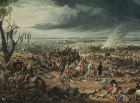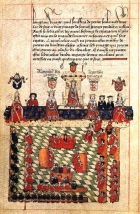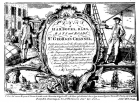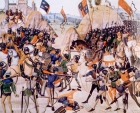Britain & Ireland
Women and social history can be overlooked themes in periods where records tended to focus on money, religion and Kings. While those latter themes are covered in this section so are features on individual women, their relationships with power and how they were able to influence politics and the people around them. Social history is also addressed through the stories of Hermits, soldiers, tax records and revolting peasantry with nobles. Read more
Sort by:
Date (Newest first) | Title A-Z
Show:
All |
Articles |
Podcasts |
Multipage Articles
-

Linking Law: Viking and medieval Scandinavian law in literature and history
ArticleClick to view -

Losing sight of the glory: five centuries of combat surgery
ArticleClick to view -

MOOCs and the Middle Ages
ArticleClick to view -

Magna Carta and the Origins of Parliament
ArticleClick to view -

Magna Carta: oblivion and revival
ArticleClick to view -

Medieval 'Signs and Marvels'
ArticleClick to view -

Medieval Medicine Podcast
Multipage ArticleClick to view -

My Favourite History Place - Barnard Castle
ArticleClick to view -

My Favourite History Place: A Short History of Brill
ArticleClick to view -

My Favourite History Place: Berwick-upon-Tweed railway station
ArticleClick to view -

My Favourite History Place: Castle Hill, Huddersfield
ArticleClick to view -

My Favourite History Place: Sawley Abbey
ArticleClick to view -

My Favourite History Place: The Chantry Chapel of St Mary on Wakefield Bridge
ArticleClick to view -

My Favourite History Place: The North Wessex Downs and Cwichelm’s Barrow
ArticleClick to view -

Myth and Reality: A Necessary Marriage at Twelfth Century Glastonbury
ArticleClick to view -

National distinctions entirely laid aside?
ArticleClick to view -

New light on Rendlesham
ArticleClick to view -

Norman Barons
ArticleClick to view -

Old age care in the time of crisis: London in the sixteenth century
ArticleClick to view -

On the campaign trail: walking the Hundred Years War
ArticleClick to view

